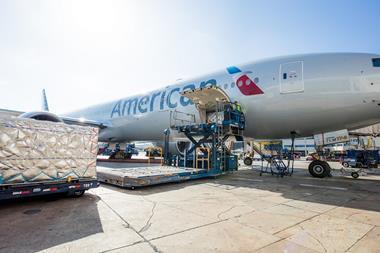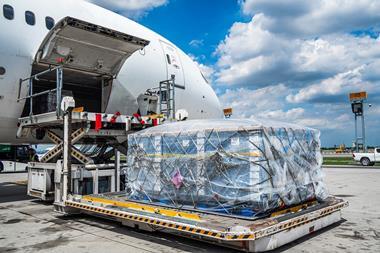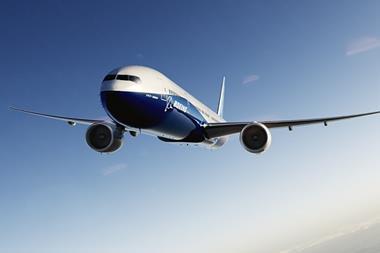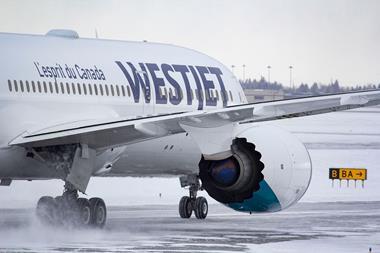Air Canada has revealed the first destinations for its new converted Boeing 767 freighter aircraft, which is due to go into service with its cargo arm in autumn this year.
The initial list of planned routes for the Boeing 767-300ER freighters will be based primarily on Toronto Pearson International Airport and will operate to Miami, Quito, Lima, Mexico City and Guadalajara — the latter a first for Air Canada Cargo.
Additional destinations to be served in early 2022, as more converted freighters enter service, include Halifax, St John's, Madrid and Frankfurt, said the airline.
Air Canada started converting some of its retired passenger Boeing 767s into full-freighters in a plan announced in January.
Initially, the carrier envisaged converting two aircraft but extended the plan to cover seven aircraft in February. It expexts to complete the programme by the end of 2022.
All seats are being removed from the aircraft, a large door cut into the fuselage to allow for loading of palletised cargo and the floor reinforced to carry additional weight.
Cargo.one adds first North American airline with Air Canada
Air Canada taking aim at seven B767 freighters
Air Canada signs up for converted freighters as it targets air cargo
Jason Berry, vice president, cargo said: "These freighters will provide long-term stability and growth for our cargo customers, in particular the freight forwarding community who require reliable air freight capacity year-round. They will allow us to continue building on the success of our cargo-only flights and are an important part of our future growth."
The programme "opens up a world of opportunities for us and our customers," he added.
The carrier said the conversions will allow it to provide consistent capacity on key freight routes and enhance its capabilities in markets such as automotive and aerospace parts, oil and gas equipment, pharmaceuticals, perishables, as well as growing demand for e-commerce goods.
The carrier added that in Autumn 2020, it concluded a collective agreement amendment with the Air Canada Pilots Association for contractual changes to enable it to competitively operate dedicated cargo aircraft.
Since March 2020, Air Canada has operated more than 9,000 all-cargo flights using its wide-body passenger aircraft, as well as temporarily modified Boeing 777 and Airbus A330 aircraft with seats removed from the passenger cabin.










